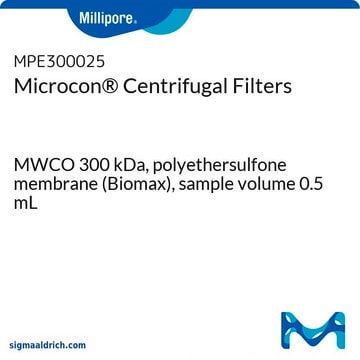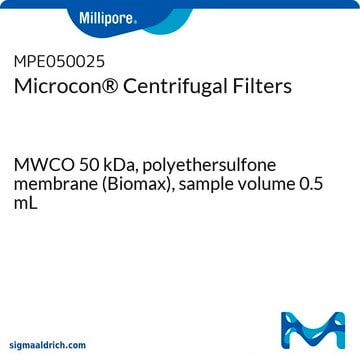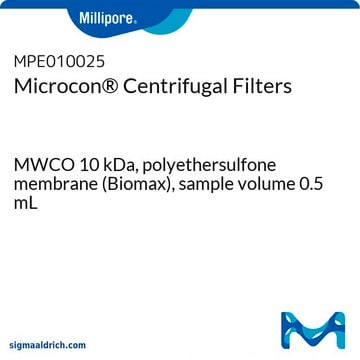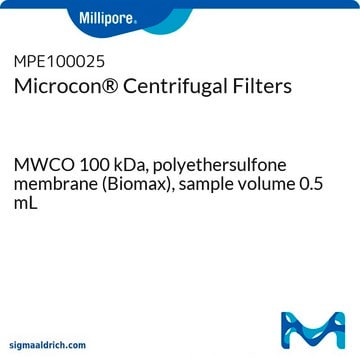MRCF0R100
Microcon® DNA Fast Flow Centrifugal Filters
sample volume 0.5 mL, Ultracel® regenerated cellulose membrane (low binding)
Synonym(s):
Centrifuge concentrator
About This Item
Recommended Products
material
Ultracel® regenerated cellulose membrane (low binding)
polyacetal base (membrane support)
polycarbonate device top
polypropylene tube (for filtrate/concentrate)
silicone O-ring (medical-grade)
Quality Level
sterility
non-sterile
feature
holdup volume> 10 μL
manufacturer/tradename
Microcon®
parameter
0.5 mL sample volume
technique(s)
DNA purification: suitable
RNA purification: suitable
L
4.50 cm (1.8 in.)
diam.
12.3 mm
filtration area
0.32 cm2
shipped in
ambient
Related Categories
General description
Application
Features and Benefits
- high recovery for small volumes with reverse spin
- low-binding Ultracel® membrane
- fast processing
- yield concentration factors <20X for consistent reproducibility
Linkage
Legal Information
Certificates of Analysis (COA)
Search for Certificates of Analysis (COA) by entering the products Lot/Batch Number. Lot and Batch Numbers can be found on a product’s label following the words ‘Lot’ or ‘Batch’.
Already Own This Product?
Find documentation for the products that you have recently purchased in the Document Library.
Our team of scientists has experience in all areas of research including Life Science, Material Science, Chemical Synthesis, Chromatography, Analytical and many others.
Contact Technical Service





